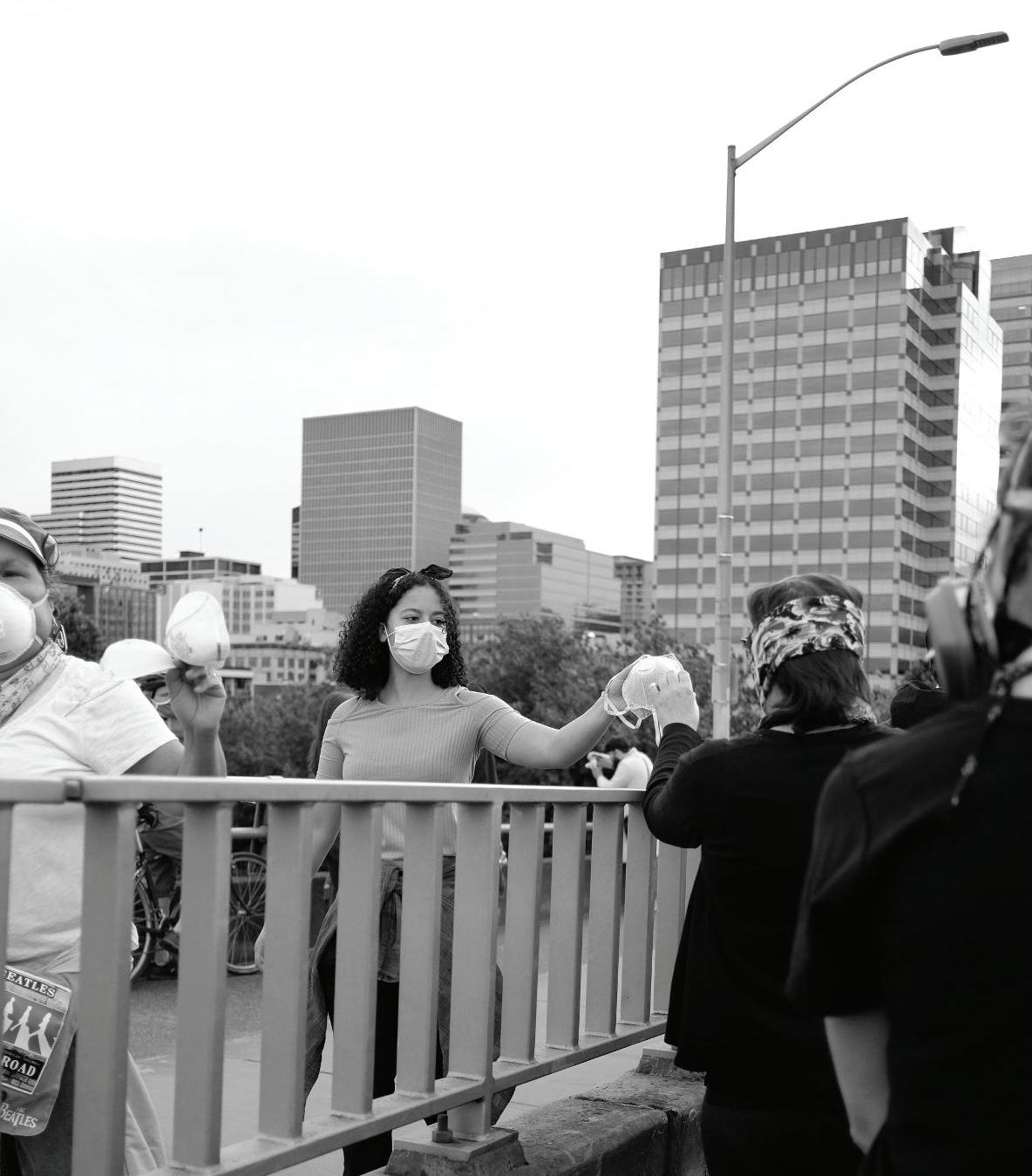
3 minute read
Iannarone
million to community-led public safety programs.
“We’re asking police to do too much. The same officers we watch brutalizing protesters are not appropriate first responders for those experiencing houselessness or in mental health crisis. We need to provide real help for everyone who calls in a way that reflects our values.
Advertisement
“The police budget has increased while City Council has cut vital programs like parks and YouthPass. Had council taken the opportunity for transformational change, these costly nightly protests would have reduced in intensity and frequency. Portlanders want us spending our precious dollars on economic recovery and community resilience rather than squandering them on police overtime at protests, tear gas, and costly lawsuits regarding police brutality. We should look into expanding the Portland Street Response, piloting a guaranteed-income program for marginalized and vulnerable people, investing in communities harmed by overpolicing, and building community safety hubs across neighborhoods to prepare for disaster, displacement and pandemic.”
Teressa Raiford: She did not respond to WW’s request for comment.
BLACK AND WHITE IN OREGON
DONORS
Contribution of the Week
How much? $500
Who got it? Mayor Ted Wheeler on May 20
Who gave it? This is the unusual part: The donor was his political consultant, Christian Sinderman of the Seattle firm NWP Consulting.
Why is it interesting? Usually, consultants get paid by their clients rather than give money to them. Instead, Sinderman gave the mayor the maximum donation the day after the May primary.
The contribution also draws attention to the struggles of the campaign. Wheeler, who missed averting a runoff by less than a percentage point, has had three campaign managers and struggled with fundraising.
After a court decision this spring upheld campaign finance caps approved by Portland voters in 2018, the City Auditor’s Office decided in May that candidates had to abide by a $500-per-donor limit on contributions. Wheeler had opted not to observe such a limit in his previous fundraising, and he also chose not to participate in the city’s public campaign financing system. That means his leading opponent, Sarah Iannarone, has raised five times his war chest. Wheeler has reported raising just over $70,000 since the primary; Iannarone has nearly $370,000.
What does the campaign say? “Christian, like many others who support the mayor, simply wanted to contribute to the effort as an individual outside of any work his firm is doing,” says Wheeler campaign manager Danny O’Halloran. “We’re grateful for his, and all of our donors’, support.” RACHEL MONAHAN.
Who Gets Therapy?
Black Oregonians can find few mental health care providers who share their experiences.
Oregonians have plenty of fuel for anxiety these days. The air outside can be too smoky to breathe, and the air indoors might contain droplets from coronavirus-carrying sneezes. For Black residents, the worry may be worse: Imagine the national conversation were focused on how to respond responsibly to police killing you.
However, when Black Oregonians seek mental health care from a Black counselor to talk about these experiences, their options are scarce. Black mental health care providers are greatly underrepresented in Oregon.
A 2017 Oregon Health Authority report showed Black care providers made up less than 1% of each type of mental health focus—including Black psychologists, therapists and counselors—while Black Oregonians made up 2.2% of the state’s population.
Meanwhile, white non-Latinx mental health care providers were overrepresented across the state, making up 75.1% of the population but 80% or more of each type of mental health care provider.
Black psychiatrists were slightly better represented at 1.4%, while white psychiatrists made up 81.7%.
For communities of color, a culturally specific therapist is crucial because many of the issues they face are a direct result of racism and other oppressive factors such as high poverty rates. OHA health assessments show that those in poverty and with other disadvantages are more likely to experience mental distress.
Portland counselor Denise Williams is a Black woman with almost 30 years of experience in the field. She tells WW that Black people are mentally exhausted from dealing with racism, especially younger people.
The need for mental health care is present and symptoms appear early in life. Oregon health advocacy group Our Health Oregon writes that nearly half of all mental illness begins at as young as 14 years old.
Williams says white therapists can be effective for Black clients talking about racism, but it’s unlikely.
“I always say, being Black, you could never know how I feel,” Williams says. “I could explain it to you over and over again, but you could never feel what I feel, because you’re not Black.” LATISHA JENSEN.










